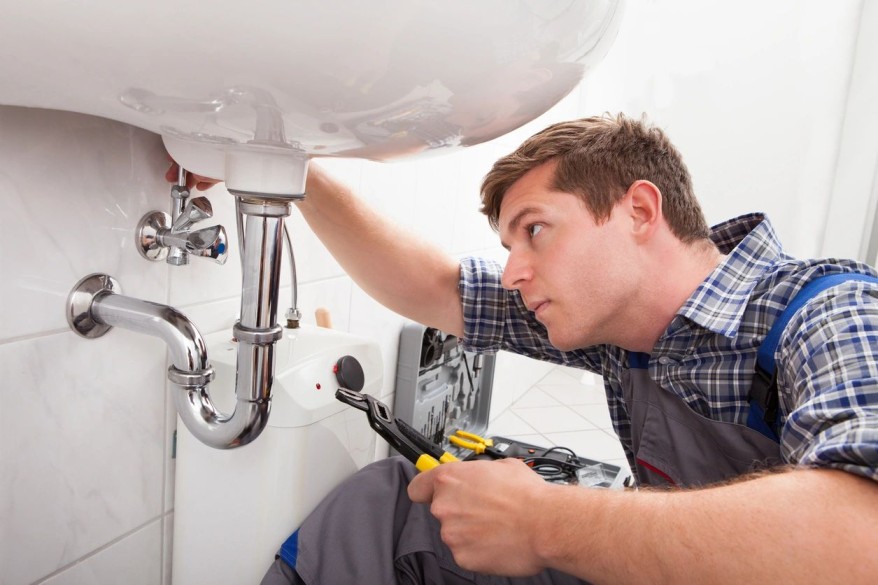Handling Plumbing Emergencies
When it comes to home maintenance, dealing with plumbing emergencies can be one of the most stressful situations. A sudden water leak or burst pipe can cause significant damage to your property and lead to expensive plumbing repairs. Knowing how to handle these emergencies can save you time, money, and a lot of frustration.
Burst Pipes
A burst pipe is one of the most severe plumbing emergencies you can encounter. This can happen due to freezing temperatures, old or corroded pipes, or excessive water pressure. When a pipe bursts, it can flood your home in minutes, causing extensive water damage.
How to Handle a Burst Pipe:
- Turn off the Water Supply: Immediately shut off the main water valve to stop the flow of water.
- Drain the System: Open all faucets to drain any remaining water in the pipes.
- Call for Emergency Plumbing Services: This is a situation where professional help is essential. A plumber will assess the damage and repair or replace the burst pipe.
- Temporary Fixes: If you cannot get immediate help, use pipe repair tape or clamps as a temporary solution until a plumber arrives.
Water Leaks
Water leaks are a common plumbing emergency that can range from a dripping faucet to a more serious issue under your sink or within walls. Even minor leaks can lead to significant water waste and damage if not promptly addressed. To handle water leaks, first identify the source and fix minor issues yourself, like replacing a washer. For severe leaks, turn off the water supply to prevent further damage. If you can’t locate or fix the leak, call an emergency plumbing service. Professionals have the tools and expertise to detect and repair leaks effectively.
Clogged Drains
Clogged drains are a frequent nuisance that can turn into a serious plumbing emergency if not addressed promptly. A severe clog can cause a complete blockage, leading to water backing up into sinks, bathtubs, or toilets. To handle clogged drains, start by using a plunger for minor clogs, ensuring there’s enough water in the basin to cover the plunger’s cup. For more stubborn clogs, a drain snake can be effective. Avoid chemical cleaners, as they may damage your pipes and are not always reliable. If the clog persists or worsens, it’s best to call for emergency plumbing services, where professionals can use specialized tools to clear the blockage safely and effectively.
Overflowing Toilets
An overflowing toilet is a messy and disruptive plumbing emergency often caused by a clog, a malfunctioning float, or a blockage in the sewer line. To address the issue, first turn off the water supply by locating and closing the shutoff valve at the base of the toilet. Next, use a plunger to attempt to clear the clog, and check the float to ensure it’s functioning correctly. If the overflow persists or you suspect a sewer line problem, call for emergency plumbing services right away to prevent further damage.
Sewer Backups
Sewer backups are a serious plumbing emergency that occurs when your home’s sewer line becomes clogged or damaged, leading to wastewater flowing back into your home. This not only poses a significant health hazard but can also cause extensive property damage. To handle a sewer backup, immediately stop using all water fixtures to prevent further issues and call for emergency plumbing services to clear the blockage and inspect the sewer line. Regular maintenance, including inspections and cleanings, can help prevent future backups.
Water Heater Malfunctions
A malfunctioning water heater can quickly escalate into a plumbing emergency, with issues like no hot water, strange noises, or leaks indicating serious problems that need immediate attention. Start by checking the thermostat to ensure it’s set correctly and that the unit has power. If you spot any leaks around the base, turn off the water supply and power source immediately. Given the complexity and potential hazards, it’s crucial to call a plumber to assess and repair the unit, preventing further damage or safety risks.
Frozen Pipes
In colder climates, frozen pipes are a frequent plumbing emergency during winter. When water inside a pipe freezes, it expands and can cause the pipe to burst. To handle frozen pipes, immediately shut off the main water valve to prevent further damage. Then, slowly thaw the pipes using a hairdryer, heating pad, or towels soaked in hot water, but never use an open flame. Once thawed, inspect the pipes for any cracks or leaks, and if any damage is found, contact an emergency plumbing service for plumbing repairs.
Upgrade your space with the perfect plumbing fixtures. Our guide will help you select stylish, efficient, and durable options for any room. Read More
FAQs About Plumbing Emergencies
What should I do if I have a burst pipe?
First, turn off the main water supply to stop the water flow. Then, drain the system by opening all faucets. Call an emergency plumbing service to repair or replace the burst pipe.
How can I prevent plumbing emergencies?
Regular maintenance, such as inspecting pipes, drains, and your water heater, can help prevent many plumbing emergencies. Additionally, insulating pipes in cold weather can prevent freezing.
What should I avoid during a plumbing emergency?
Avoid using chemical drain cleaners, as they can damage your pipes. Also, do not attempt to fix severe leaks, burst pipes, or sewer backups without professional help.
Can I fix a clogged drain myself?
Minor clogs can often be cleared with a plunger or drain snake. However, for more persistent clogs, it’s best to call a plumber to avoid damaging your pipes.
When should I call an emergency plumber?
Call an emergency plumbing service if you experience major leaks, burst pipes, sewer backups, or persistent clogs that you cannot resolve on your own.

